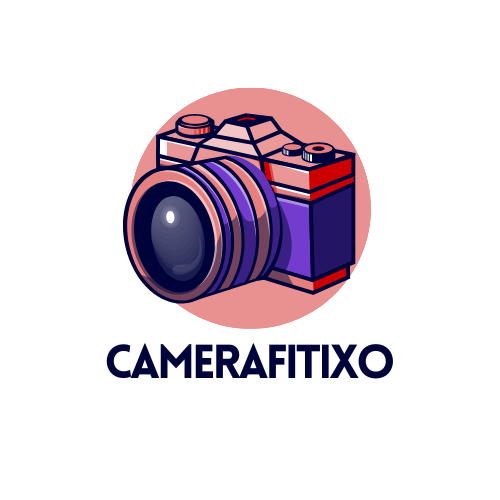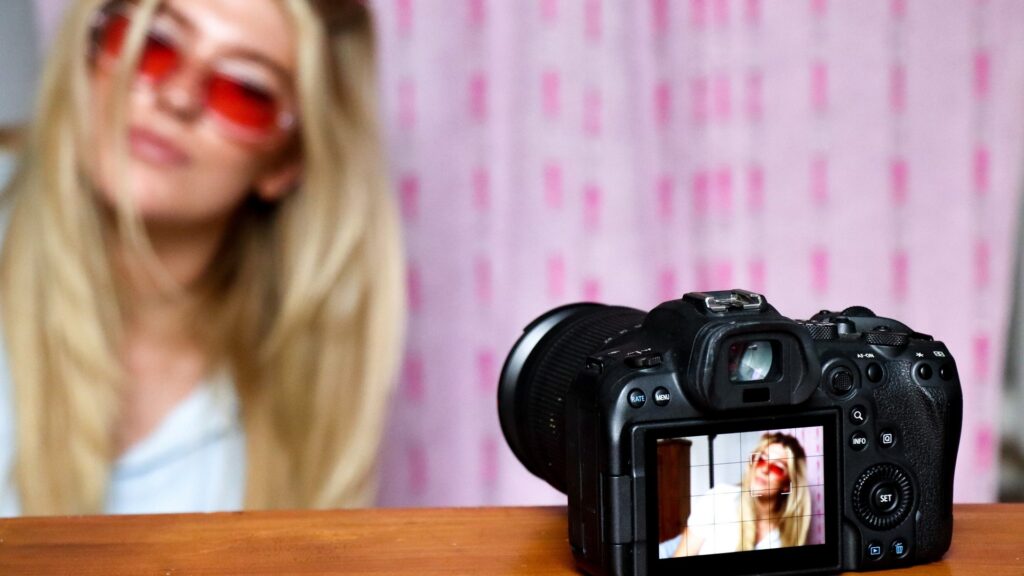Blog
How to Choose the Best Camera for Self-Portraits and Portrait Sessions
How to Choose the Best Camera for Self-Portraits and Portrait Sessions
Self-portraits and portrait sessions offer a unique opportunity for photographers to capture emotion, character, and personality in a way that standard photographs might not. Whether you’re a professional photographer, a hobbyist, or just someone who loves capturing your own image, choosing the best camera for self-portraits and portrait sessions can significantly enhance the final result. In this guide, we will walk you through the key factors to consider when selecting a camera for self-portraits and portrait photography.
1. Why the Right Camera Matters for Portrait Photography
The right camera can make all the difference when it comes to capturing the perfect portrait. Portrait photography is all about detail, mood, and expression, and the camera you choose plays a vital role in helping you achieve those qualities. Here’s why it matters:
- Sharp Focus: A high-quality camera ensures sharp focus on the subject, which is especially important in portrait photography where details like facial expressions, eyes, and skin textures matter.
- Color Accuracy: Portrait photography requires accurate skin tones and color reproduction. A camera that provides natural and true-to-life colors ensures that your subjects look their best.
- Shallow Depth of Field: For portrait photography, you often want the background to be blurred while keeping the subject in focus. A camera with a large sensor and wide aperture can help achieve this desirable effect.
- Low Light Performance: Portrait sessions are sometimes shot in low light or dimly lit environments. A camera with good low-light performance will allow you to capture crisp and clear images even when the lighting isn’t ideal.
- Flexibility and Control: Self-portraits often involve creativity and experimentation with angles and lighting. A camera that offers manual control and flexibility, such as adjustable ISO, shutter speed, and aperture settings, will give you full creative control over your shots.
 2. Key Features to Look for in a Camera for Self-Portraits and Portrait Sessions
2. Key Features to Look for in a Camera for Self-Portraits and Portrait Sessions
When choosing a camera for self-portraits and portrait sessions, there are a few key features you should consider to ensure you get the best results:
- Resolution: A higher resolution allows for better detail in your portraits. Cameras with 20 megapixels or more will give you sharp, clear images, even when cropped or enlarged.
- Sensor Size: Full-frame sensors are typically preferred for portrait photography because they offer better depth of field control, wider dynamic range, and better low-light performance compared to crop sensors.
- Autofocus: Fast and accurate autofocus is important, especially if you’re shooting moving subjects or using a camera for self-portraits. Look for a camera with a reliable autofocus system, especially one with face and eye detection.
- Screen Articulation: For self-portraits, a camera with a fully articulating LCD screen is a great advantage. It allows you to frame yourself easily, ensuring that you can check the composition and focus without needing an assistant.
- Low-Light Performance: A camera that performs well in low-light conditions will help you capture sharp portraits, even in less-than-ideal lighting. Look for cameras with a wide ISO range and minimal noise at high ISO levels.
- Battery Life: Portrait sessions can take time, and long shooting hours may drain your camera’s battery. A camera with extended battery life or the ability to swap out batteries will help ensure you can shoot uninterrupted for extended periods.
3. Best Cameras for Self-Portraits and Portrait Sessions
Now that you know the key features to look for, here are some of the best cameras for self-portraits and portrait sessions, each offering excellent image quality, focus performance, and ease of use.
a. Canon EOS R6 Mirrorless Camera
The Canon EOS R6 is a versatile mirrorless camera that excels in portrait photography. Its compact design and advanced features make it a great choice for both professionals and hobbyists.
- Key Features:
- 20.1 megapixel full-frame sensor for high-quality images and good low-light performance
- Dual Pixel autofocus with eye detection, ensuring sharp focus on the subject’s eyes
- 4K video recording, perfect for vlogs or portrait videos
- 5-axis in-body image stabilization for sharp handheld shots
- Fully articulating LCD screen for easy framing of self-portraits
- Why It’s Great for Portraits: The Canon EOS R6 delivers exceptional autofocus, especially for eye detection, which is critical in portraiture. The fully articulating screen is especially useful for self-portraits, as you can easily see yourself while composing the shot.
b. Nikon Z7 II Mirrorless Camera
The Nikon Z7 II is a high-resolution full-frame mirrorless camera, ideal for photographers looking for exceptional detail and color accuracy in their portraits. It’s known for its robust autofocus system and solid build.
- Key Features:
- 45.7 megapixel full-frame sensor for ultra-detailed images
- 493-point hybrid autofocus system for precise focus tracking
- 4K UHD video recording for portrait video work
- 9fps burst shooting, great for capturing multiple poses in a portrait session
- Dual card slots for reliable storage
- Why It’s Great for Portraits: The Z7 II’s high-resolution sensor ensures that every detail is captured, from the texture of the skin to the subtle details in clothing. Its autofocus system, including face and eye detection, makes it easier to focus on moving subjects.
c. Sony Alpha a7 III Mirrorless Camera
The Sony a7 III is a well-rounded mirrorless camera with exceptional autofocus, great image quality, and excellent low-light performance, making it an excellent choice for both portrait sessions and self-portraits.
- Key Features:
- 24.2 megapixel full-frame sensor for balanced detail and low-light performance
- Fast and accurate autofocus with 693 phase-detection points
- 4K video capabilities for high-quality portrait videos
- Dual memory card slots for increased storage flexibility
- 5-axis in-body image stabilization for handheld shooting
- Why It’s Great for Portraits: The Sony a7 III’s fast autofocus and excellent low-light capabilities make it a fantastic choice for portrait photography, even in dim environments. It also has a long battery life, which is essential for extended portrait sessions.
d. Fujifilm X-T4 Mirrorless Camera
Fujifilm’s X-T4 is an excellent option for those who want a camera that delivers beautiful colors and high-quality images in a compact body. It’s a great choice for photographers who like to have full manual control.
- Key Features:
- 26.1 megapixel APS-C sensor for sharp, vibrant portraits
- Fast hybrid autofocus with face and eye detection
- 4K video recording with exceptional color accuracy
- In-body image stabilization for stable handheld shooting
- Fully articulating LCD screen for easy self-portrait framing
- Why It’s Great for Portraits: The Fujifilm X-T4 is known for its exceptional color science, making it an excellent choice for portrait photographers who want natural skin tones and vibrant images. The articulating screen is also a plus for self-portraiture.
e. Canon EOS 90D DSLR Camera
The Canon EOS 90D is a DSLR camera that offers great value for portrait photographers who prefer a more traditional camera design. It combines high resolution with fast autofocus, making it ideal for studio work or outdoor portrait sessions.
- Key Features:
- 32.5 megapixel APS-C sensor for sharp, detailed images
- Dual Pixel autofocus for fast and reliable focusing
- 4K UHD video recording with no crop for versatile portrait video
- Vari-angle touchscreen for easy self-portrait framing
- Excellent battery life for long portrait sessions
- Why It’s Great for Portraits: The Canon EOS 90D offers a high-resolution sensor and an intuitive autofocus system, perfect for capturing sharp portraits. The fully articulating screen is especially helpful for self-portraits and creative shots.
 4. Lenses to Pair with Your Camera for Portrait Photography
4. Lenses to Pair with Your Camera for Portrait Photography
The camera body is only part of the equation—choosing the right lens is crucial for capturing beautiful portraits. Here are some lenses to consider for your self-portraits and portrait sessions:
- 50mm f/1.8 Prime Lens: Known for its sharpness and ability to create beautiful background blur (bokeh), the 50mm f/1.8 is a classic choice for portraits.
- 85mm f/1.4 or f/1.8: The 85mm lens is another favorite for portraiture, offering flattering compression and a shallow depth of field for stunning, sharp portraits with a creamy background.
- 24-70mm f/2.8 Zoom Lens: A versatile zoom lens, perfect for portrait photographers who want to quickly adjust their framing without changing lenses. It covers wide-angle to medium telephoto, ideal for full-body and close-up portraits.
5. Conclusion
Choosing the best camera for self-portraits and portrait sessions depends on several factors, including resolution, autofocus performance, and ease of use. Cameras like the Canon EOS R6, Nikon Z7 II, and Sony a7 III offer the versatility, image quality, and performance needed to capture stunning portraits. By pairing the right camera with a good lens, you’ll be well-equipped to create portraits that truly showcase your subject’s personality and beauty. Whether you’re shooting for yourself or working with models, the right camera will help you take your portrait photography to the next level.


